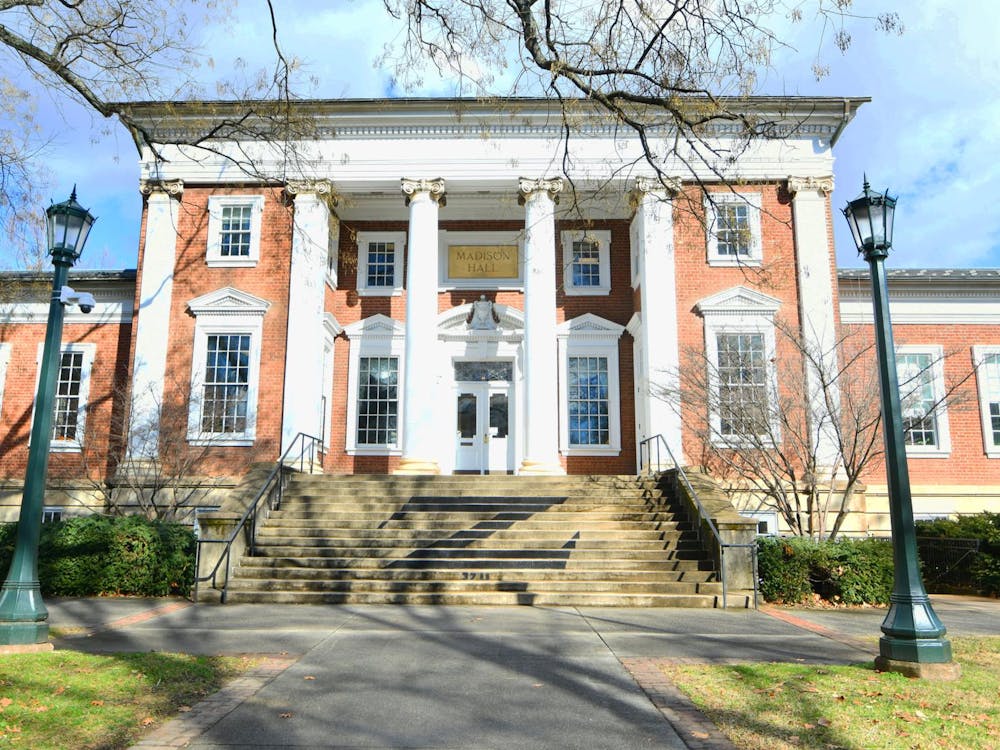This year’s Student Council presidential debate was largely a bust — only one of the two candidates showed up. Though two candidates for other Student Council executive positions appeared, they all belonged to the same running ticket, meaning the event effectively became a forum, not a debate. Therefore, the total number of student government debates this year rounds out to zero, an unfortunate outcome for the University’s student self-governance system as a whole. The presidential debate offers student voters the chance to critically examine the candidates, which importantly increases the transparency of the voting process as well as the competency of those in leadership. To enable skilled leadership and true accountability, more effort must be undertaken to make this debate a prominent feature of the University’s expression of student self-governance.
This year’s debate debacle points to a greater trend of shaky engagement with the Student Council presidential debates in recent years. The hosts of this debate, The University Board of Elections and The Cavalier Daily, began streaming the debates online after the COVID-19 pandemic. In 2021, The Cavalier Daily’s Facebook livestream of the debate garnered more than 3,000 viewers. In 2022, however, viewership suffered a steep decline, attracting only around 500 viewers. The 2023 debate rebounded slightly but still only attracted a viewership of around 1,700. And the 2024 “debate,” is not even posted on The Cavalier Daily Facebook page. Even if all the viewers of 2021 were students, the peak viewership still accounts for only around thirteen percent of the University’s student body. And in 2022, it was only two percent of the student body. At best, the presenters of these debates — and the candidates themselves — are reaching a sliver of the University’s population.
As these viewership statistics suggest, the efforts to publicize the debates have been woefully inadequate. UBE demonstrates little effort in advertising the event — this year, they made two total posts referencing the debate on Instagram, garnering 29 likes and 0 comments. None of the posts contain more than two sentences explaining the debates’ significance, while its website simply does not describe it at all. The debate’s other host, The Cavalier Daily, has done little to make up any ground. Its Instagram page did not mention this year’s debate in the days leading up to it, nor did it publish anything that previewed the debate. By failing to publicize these debates, the hosts disengage prospective viewers and fail to establish debate as an integral part of the University’s elections.
The reason why debate should be an integral part of these elections boils down to one fact — these Student Council offices truly make an impact. Debates, by testing and publicizing the abilities of candidates, ultimately bolster the student-governance ecosystem as whole. Debates allow presidential candidates’ views to be made clear, making it easier for students to hold their leaders accountable to what they promise. Accountability is a necessary element of student self-governance, keeping candidates and elected officials responsible to their own goals as well as their constituents’ needs. Thus, preserving Student Council’s integrity and impact that the student self-governance system has on the University requires flourishing and accountable debate.
Additionally, debate plays a significant role across Grounds. In fact, there are many organizations built upon the traditions of debate, such as the Jefferson Literary and Debating Society and the Washington Society. These, and other organizations dedicated to free speech, could take it upon themselves to publicize or even host some of these debates. Not only would this make more people invested in the process, it also would increase the stakes. Student Council President is the only office on Grounds where such debates need to occur, and with greater organizational engagement, perhaps debates could be expanded to other offices.
With debate surviving as a prevalent element of this University’s commitment to free speech, debates could extend from the Student Council Presidential election, to the Honor Committee and to the University Judiciary Committee. After all, these self-governance offices are united in their goal to debate ideas that properly support and represent the University’s student body.
It is tempting to claim that a lack of engagement with debates and student elections is symptomatic of an apathetic student population. But as significant student interest regarding the recent referendum demonstrates, many University students are eager to act towards change they deem worthwhile. While the issues in the referendum are more eye-catching than student self-governance, there are still lessons to be learned from the turnout.
In the referendum, students actively reflected upon the transparency of the University’s investments and to what ends student tuition is used. In a similar vein of student empowerment and voice, Student Council elections should appeal to the ways in which students can bargain with the administration and develop a more representative University mission.
Additionally, the persistence of rhetoric surrounding the referendum demonstrates student leaders’ commitment to their message and turnout. If the hosts of the presidential debates are serious about making these elections and debates a real talking point on Grounds, a similarly consistent dedication is necessary.
Pitting the ideas of Student Council presidential candidates against each other helps sharpen their visions, and it allows the priorities of the student body to come plainly into focus. Last semester’s failed Student Council presidential debate has demonstrated a lack of commitment to debates and a lack of recognition for their value to the student body. By embracing and prioritizing debate, student self-governance elections can hopefully become more reflective of the will of students at the University.
Viet Huynh is an opinion columnist who writes about student self-governance for The Cavalier Daily. He can be reached at opinion@cavalierdaily.com.
The opinions expressed in this column are not necessarily those of The Cavalier Daily. Columns represent the views of the authors alone.







